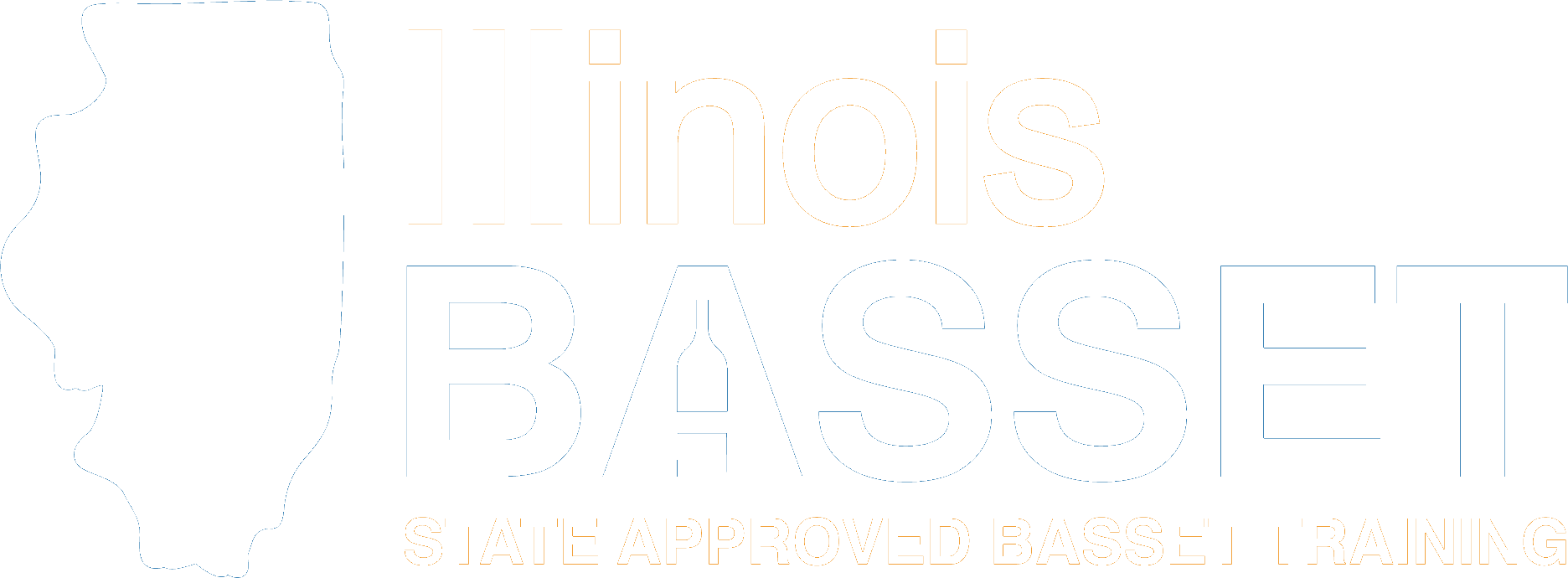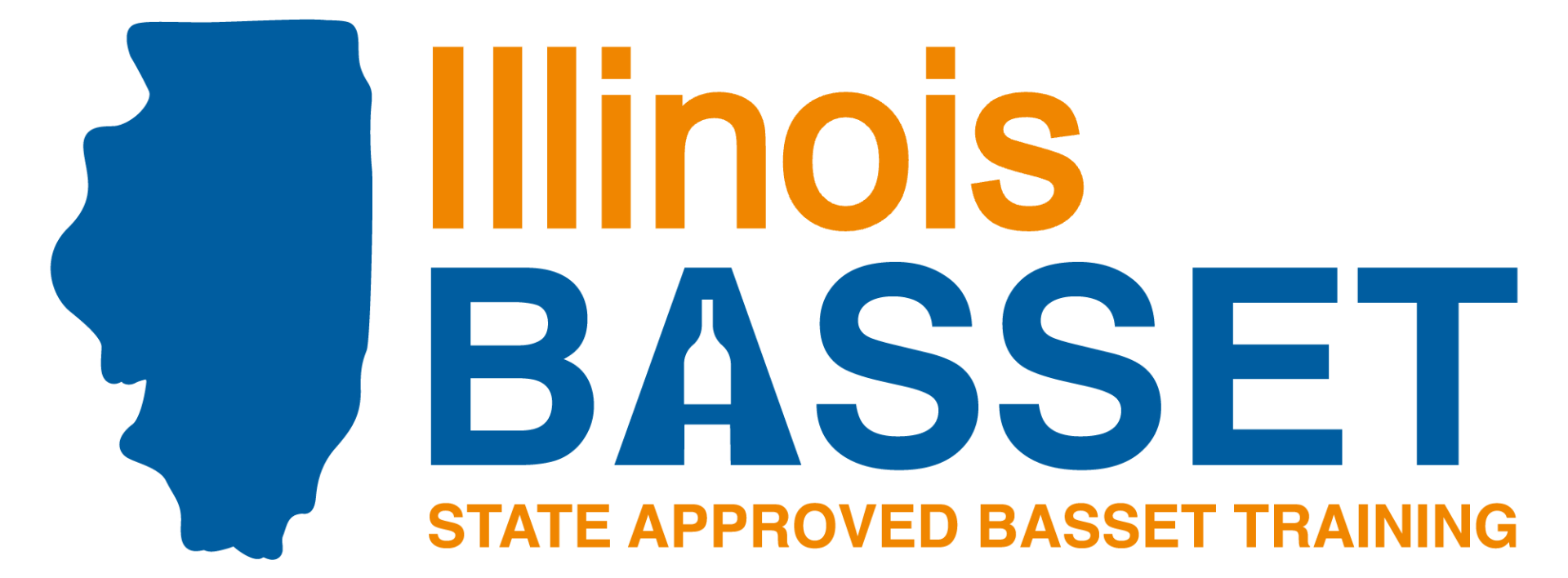Navigating the New Landscape: What Illinois Hospitality Workers Need to Know in 2025
May 9
/
Mr Cheeky

The hospitality industry in Illinois is undergoing significant transformations in 2025. From legislative changes to technological advancements and economic shifts, hospitality workers must stay informed to adapt and thrive.
1. Legislative Changes Impacting Hospitality Workers
Several new laws have come into effect in Illinois that directly affect hospitality workers:
Minimum Wage Increase: As of January 1, 2025, the state's minimum wage has risen to $15 per hour for employees aged 18 and older, and $9 per hour for tipped employees.
Block Club Chicago
Salary Transparency: Employers with 15 or more employees are now required to include salary ranges and benefits in job postings, promoting pay equity and informed decision-making for job seekers.
My Journal Courier
Worker Freedom of Speech Act: Employees have the right to opt out of workplace meetings discussing politics or religion without fear of retaliation. This law aims to protect workers from being compelled to participate in discussions that may not align with their personal beliefs.
Access to Pay Stubs: Employees and former employees can request copies of their pay stubs, and employers are obligated to provide them within 21 days. This ensures transparency and allows workers to verify their compensation records.
2. Technological Advancements in Hospitality
Technology continues to reshape the hospitality landscape:
Automation and Self-Service: The adoption of self-serve kiosks, QR-code menus, and personalized ordering systems is expanding beyond back-of-house applications, enhancing efficiency and customer experience.
Illinois Licensed Beverage Association
Personalization Through Data: Utilizing customer data to tailor experiences is becoming increasingly important. Hospitality workers should be aware of how data analytics can influence service delivery and guest satisfaction.
3. Economic Outlook and Industry Trends
The economic environment presents both challenges and opportunities:
Tourism Decline: Illinois has experienced a downturn in tourism, with a reported 9.4% projected decline in international arrivals for 2025. Factors such as tariffs and international travel declines are impacting hotel occupancy rates.
Travel And Tour World
Investment in Hospitality Real Estate: Despite economic uncertainties, there is strong demand in hospitality commercial real estate, with investors navigating market shifts and seeking growth opportunities in secondary markets.
4. Workforce Development and Opportunities
The hospitality sector remains a significant employer in Illinois:
Employment Statistics: As of March 2025, the accommodation and food services sector in Illinois employed approximately 503,700 individuals, indicating steady demand for hospitality workers.
Trading Economics
Training and Skill Development: With the integration of new technologies and service models, ongoing training and skill development are essential for hospitality workers to remain competitive and meet evolving industry standards.
Conclusion
Staying informed about legislative changes, embracing technological advancements, understanding economic trends, and focusing on continuous skill development are crucial for hospitality workers in Illinois to navigate the evolving landscape in 2025. By proactively adapting to these changes, workers can position themselves for success in a dynamic industry.

Copyright © Certified Online Training LLC / Illinois BASSET 2025 - 2026
www.bartenderillinois.com
www.bartendingillinois.com
www.bartendingschoolillinois.com
www.bassetbartender.com
www.illinoisbassetcard.com
www.bassetillinoiscertification.com www.bassetcertificationillinois.com www.bartenderlicenseillinois.com
www.bartendingillinois.com
www.bartendingschoolillinois.com
www.bassetbartender.com
www.illinoisbassetcard.com
www.bassetillinoiscertification.com www.bassetcertificationillinois.com www.bartenderlicenseillinois.com
www.idphfoodhandler.com. www.foodhandlerillinois.com www.ilccbasset.com www.bassetillinoisofficial.com. www.illinoisbassetofficial.com
basset certificate, illinois servsafe, online basset certification,"food handlers certificate",sanitation certification,"basset training online",alcohol certification, food handlers, food handler certification, basset course online, beverage alcohol sellers and servers education and training,"basset training in illinois",basset server certification,"basset training course",basset training certification,"basset training certification","get food handlers card",get food handlers permit,"get food handlers certificate online",food safety certificate,"get food handlers license",obtain food handlers certificate, get a food handlers certificate, food card renewal, food and hygiene course, food handler training program, food safety manager certification, test basic food handlers course, food and safety training, food service training program, food handlers practice test and answers,"food handler manager certification",food handling certificate near me, illinois food manager practice test, food safety certificate course, "food handlers certificate exam",food handler exam, practice food sanitation certification, food certification online,"food handlers certificate online","food handling course online",food handling certificate, online course food certification, safe food handling course, online food safety, license online,"servsafe food handler certificate","food handlers training online",food handlers online, free state food safety certificate,"online basset certification",basset class online,"basset training course online",food safety certification,food handlers certification,food handling card,food and sanitation certification online,food preparation certification, food safety online training, free online food certification,"basset class online","bassett online class",food handlers and alcohol certification,beverage server training course, alcohol seller server responsible beverage server training course, wisconsin alcohol license to serve alcohol course, alcohol serving beverage server training, responsible alcohol training, beverage alcohol sellers and servers education and training, basset training certificate,"get my food handlers card online","get a food handlers certificate",get food handlers license, online food handler certificate, food service card, food handlers certificate online illinois, get your food handlers certificate online,"get your food safe certificate online",illinois food handler certification, food handlers courses, food handling card test, food handler safety test,practice for food handlers test,food safety online, food worker training, food training course, servsafe food handler test answers, food handler safety training,food safety license online,"food handler certification course",food protection courses, food service certification test, food handler safety,food service certification, food service certification online,food handlers class online, state food safety certification, food and safety certificate online, state food handlers card, servsafe food handling, food handlers training, online handlers license,"basset course online",basset training course online, food certification course,"food handlers online",food handlers certificate, online food handler certificate course, card food, food worker certification, beverage service training, food and beverage certification, beverage training, alcohol server certificate, alcohol beverage certification training, alcohol handler certification, liquor certification, bartender certification, servers permit, responsible beverage server training course, liquor handlers license, basset alcohol,"basset certification",basset certification, food handler test, food handler, bartender classes, basset alcohol certification,"basset alcohol training",find my food handlers card, get a food handlers permit, get food safety certification, get your food handlers card,get food handlers certificate online, illinois state food handlers license, online food handlers license, get your food handlers card, online food hygiene safety, food safety exam, food safety course test, food service training, online food training, food handlers test online, free food handler safety training test, managers food handlers license,"food handler classes",certified food manager exam, safe food handling certification, food course online, food handling program, food handlers online, food card test, food handlers license online, food health card, food safe certification online, food license certificate,"safe food handling course online",food safety class, food safety training course, online certified food protection manager certificate, food service handler certificate, food safety certification, companies food handler certificate, servsafe food sanitation certificate, food and safety certificate, food handling course online, food handling license online, servsafe food handler online course, basic food safety training, food safety certificate, free online food safety certification program, servsafe food safety online course,"food handling certificate online course",servsafe food handler online,"basset license online",liquor license training ,responsible server course, alcoholic beverage server training certification, alcohol serving certification, responsible beverage course,safe serve alcohol server training certificate, food handler and alcohol permit, servsafe exam near me, server training, get bartending license, online basset training,"basset training","basset alcohol certification",food service certification, servsafe food handler test,"alcohol certification",bartender license online, alcohol serving license, alcohol server permit, bartending course certificate, basset training in illinois, free basset certification,"basset server certification","basset certificate","basset certificate illinois","get food handlers card online",get my food handlers certificate,"get my food handlers certificate",how do i get a food handlers license, get my food handlers card online, get your food safe certificate online,"food handlers cert",sanitation certification online, food handler manager, online food sanitation course,food handlers certificate,"food handler training program", food safety certification exam, food handler certification course,food safety course, practice test food handler program, online food safety training and certification food protection manager food safety cardonline sanitation certification food certification, food handling card online, bassett online class, food handler license, state food handlers, food service course, online food safe certification, food training certificate,"online food handler program",illinois food sanitation license, online food service, prep food handlers, alcohol class beverage certification, seller server certification, alcohol handler license, beverage handler certification, seller server online, alcohol server license, liquor license to serve alcohol, beverage training courses, alcohol server training certificate, alcohol beverage server basset training class, basset training for bartenders,"free basset certification","basset training for bartenders",get food handlers license, reprint my food handlers card,"get food handler certificate",get food safety certificate,"get your food handlers card online","get food handlers license online",food card, online handler training, food sanitation course, food handler course, food certification test, food protection certificate, servsafe food handler practice test, food safety training programs, food handler manager certification, food handler training courses,"food handler training courses",food handlers practice test, safe food handlers, food safety training program, food managers practice test, servsafe food handler certificate, food handler training certificate programme, food service license, food and handling, food protection course test, food service sanitation certificate, food service safety certification,"food handlers class online",certified food food service training certificate, online food safety training and certification, food sanitation license. online basset license, online alcohol seller certification, bartending certification course, responsible beverage server training, alcohol certification test, food and alcohol handlers card, alcohol serve, alcohol awareness certification, alcohol handling certificate,"beverage certification",servsafe food handlers,"bartender license online",get food handlers card online, alcohol server certification, bartender training certificate, basset alcohol training, basset training course, basset certificate, get food handlers card, get food handler certificate,"get your food handlers certificate online",food handler illinois,il food handler certificate, food safety manager exam, food handler classes, food handlers cert, food protection certification, food service manager practice test, restaurant manager test, food safety certification classes, food safety certificate, practice test food safety training, practice test food handler training, food certification practice test,"food handler training", basset and food handler certification, food safety course, basset liquor certification, food and hygiene certificate, food service handler , online food hygiene course, food handling course near me, online food service certificate, basset and food handlers, basset and servsafe, on premise basset alcohol certification, food han, learn2serve basset, food handlers and basset certificate, safe food handling course, idph food handler training, food hygiene training, food and safety course, online basset food handler, basset certification, servsafe safe food handling, certificate, food safety test, online food handlers training course, basset cert, basset bartending license, food safety training, certified food handler, food safety test, food safety certificates, basset servsafe, illinois basset certification, food handler and basset, food handler and basset certification, bassett food certification, cheap basset certification, food safety training online, certificate food, food handler license, servsafe basset, basset alcohol license, 360training, basset food and handlers, illinois basset, basset license, basset food handlers course, online safe food handling, food handlers class, food hygiene courses, food handling safety training, food safety certificate online, food handling test, basset liquor license, food handling certificate, online tips, basset certification, food certificate, test food handlers certificate, exam food service course, food handler exam questions, basic food handling training, food safety training course online, servsafe manager practice test, food handler's license, food safety certifications, food manager certificate, online food server card, food handlers certificate online test, servsafe certification, handling certificate, serv safe certificate, food safety and training certification, serve food handlers, food service sanitation certification, online food handler program, food handlers online training, best food handlers course online, basset training online, responsible beverage training, responsible beverage server, bartending license class, alcohol training, alcohol training course, certificate to serve alcohol, alcohol safety certification, responsible beverage service training,
www.illinoisbartendinglicense.com
www.illinoisbartendinglicense.com
